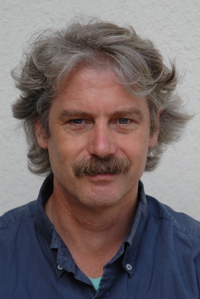
Urs App (born 1949 in Rorschach, Switzerland) is a historian of ideas, religions, and philosophies with a special interest in the history and modes of interaction between East and West.

Urs App (born 1949 in Rorschach, Switzerland) is a historian of ideas, religions, and philosophies with a special interest in the history and modes of interaction between East and West.
Urs App was born in 1949 in Rorschach on the Swiss shore of the Lake of Constance and studied in Freiburg, Kyoto and Philadelphia psychology, philosophy and religious studies. In 1989 he obtained a Ph.D. in Religious Studies (Chinese Buddhism) from Temple University in Philadelphia.[1] From 1989 to 1999 he was full professor of Buddhism at Hanazono University[2] in Kyoto and Associate Director of the International Research Institute for Zen Buddhism[3] at Hanazono University (Director Seizan YANAGIDA[4]). He has since devoted himself to writing books and producing documentaries while engaging in research at various academic institutions in Asia and Europe, most recently at the Research Institute for Zen Culture[5] (Zenbunka kenkyujo, Kyoto; 2005–2007), the Swiss National Science Foundation (SNSF;[6] 2007–2010), the Scuola Italiana di Studi sull'Asia Orientale[7] (Italian School of East Asian Studies, ISEAS; 2010-2011), and the École Française d'Extrême-Orient (2012-).
Focuses of research are Buddhist studies (especially Zen Buddhism), the history of orientalism, the history of the European discovery of Asian religions, the history of philosophy in East and West (in particular also Schopenhauer's reception of Asian religions and philosophies), and the exchange of ideas between Asia and the West.
